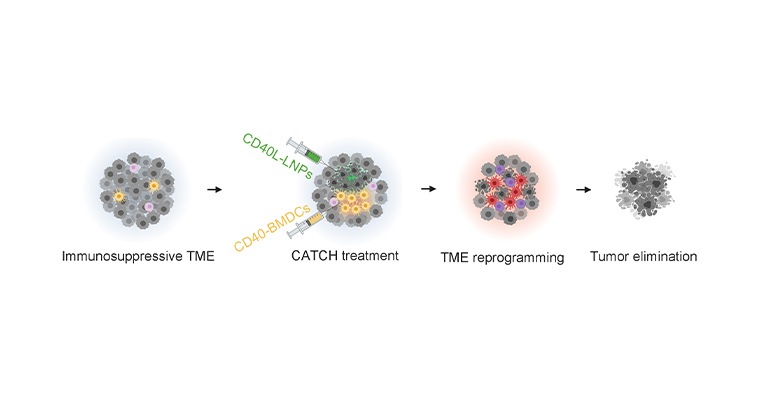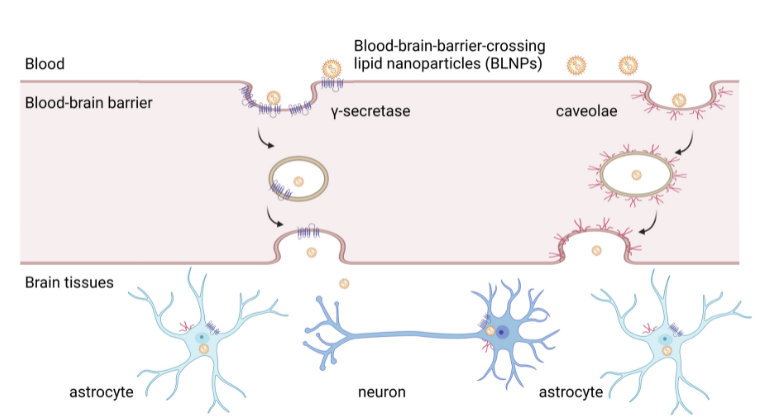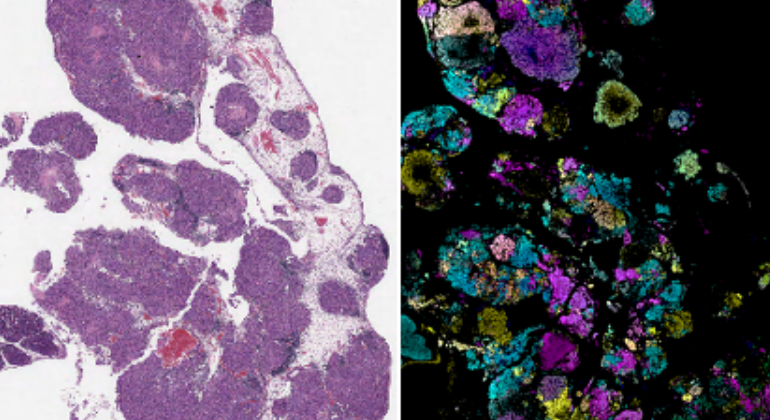Mount Sinai Researchers Identify Molecular Changes in the Brain that May Increase Risk for Multiple Sclerosis
First genome-wide study in brain tissue from MS patients.
Researchers have long suspected that a combination of genetic and environmental factors conspire in the development of multiple sclerosis (MS), an inflammatory disease of the central nervous system that strips nerve cells of their protective myelin sheath. A new study, published today in the online issue of Nature Neuroscience, highlights some of the molecular pathways critical to the onset and progression of this disease.
The study, led by genomics experts at the Icahn School of Medicine at Mount Sinai, was the first to identify so-called epigenetic changes – modifications to our DNA caused by environmental factors such as diet or exposure to chemicals – across the entire genome. Epigenetic changes have been shown to influence the expression and function of genes.
"Previous studies have linked environmental factors, such as vitamin D levels and oxidative stress, to MS," said lead investigator Patrizia Casaccia, MD, PhD, Professor of Neuroscience, Department of Genetics and Genomics at the Icahn School of Medicine at Mount Sinai. "But earlier research was limited in terms of scope and focus. By looking for epigenetic changes across the entire genome, we were able to identify molecular pathways that are involved in the disease process."
The investigators used a sophisticated microarray to analyze levels of DNA methylation, an epigenetic modification that regulates gene function, in post-mortem, disease-free brain tissue from patients who had MS and from people who did not have the disease. The analysis, led by Andrew Sharp, PhD, MD, Assistant Professor in the Department of Genetics and Genomics at the Icahn School of Medicine, revealed that tissue from MS patients had undergone a variety of subtle epigenetic changes that inhibit the formation of myelin and increase inflammation.
"Although subtle, these changes are significant in terms of their ability to increase a patient's risk for MS," said Dr. Sharp. "Looking at healthy brain tissue was critical to ensuring that the changes we observed were not due to the disease process itself."
"This study clearly demonstrates that the brains of MS patients harbor molecular changes, likely caused by environmental factors, that increase their susceptibility to the disease," said Dr. Casaccia. "Our findings constitute a disease signature that MS researchers can target to develop more effective medications for people with this neurological disease."
About the Mount Sinai Health System
Mount Sinai Health System is one of the largest academic medical systems in the New York metro area, with 48,000 employees working across seven hospitals, more than 400 outpatient practices, more than 600 research and clinical labs, a school of nursing, and a leading school of medicine and graduate education. Mount Sinai advances health for all people, everywhere, by taking on the most complex health care challenges of our time—discovering and applying new scientific learning and knowledge; developing safer, more effective treatments; educating the next generation of medical leaders and innovators; and supporting local communities by delivering high-quality care to all who need it.
Through the integration of its hospitals, labs, and schools, Mount Sinai offers comprehensive health care solutions from birth through geriatrics, leveraging innovative approaches such as artificial intelligence and informatics while keeping patients’ medical and emotional needs at the center of all treatment. The Health System includes approximately 9,000 primary and specialty care physicians and 11 free-standing joint-venture centers throughout the five boroughs of New York City, Westchester, Long Island, and Florida. Hospitals within the System are consistently ranked by Newsweek’s® “The World’s Best Smart Hospitals, Best in State Hospitals, World Best Hospitals and Best Specialty Hospitals” and by U.S. News & World Report's® “Best Hospitals” and “Best Children’s Hospitals.” The Mount Sinai Hospital is on the U.S. News & World Report® “Best Hospitals” Honor Roll for 2024-2025.
For more information, visit https://www.mountsinai.org or find Mount Sinai on Facebook, Instagram, LinkedIn, X, and YouTube.

Mount Sinai Researchers Uncover Why Some Leukemia Cells May Resist Treatment
Oct 30, 2024 View All Press Releases
New RNA-based Therapy Combats Melanoma in Mouse Models
Jul 27, 2023 View All Press Releases
Targeting One Type of Immune Cell With Another Slows Cancer Growth in Preclinical Studies
Oct 25, 2022 View All Press Releases
Novel CRISPR Imaging Technology Reveals Genes Controlling Tumor Immunity
Mar 15, 2022 View All Press Releases



